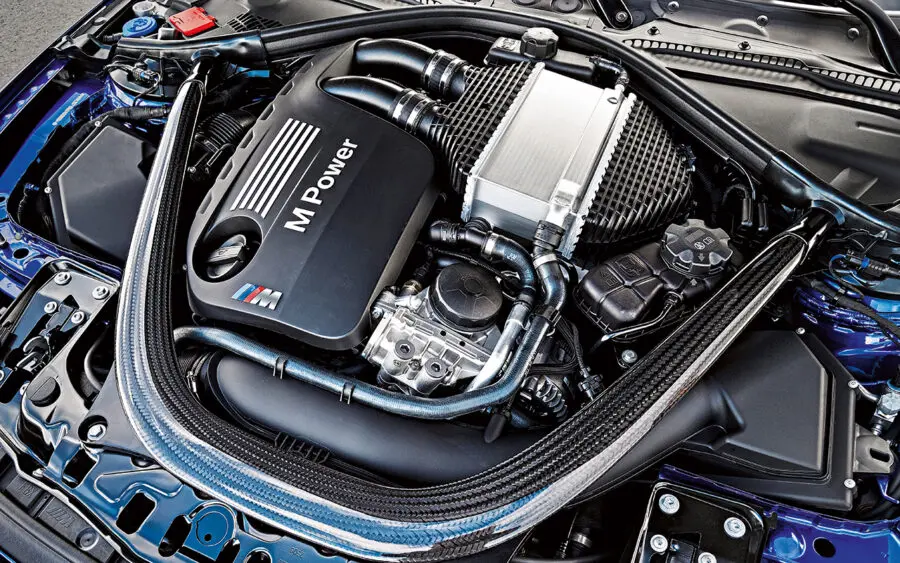The Evolution of the BMW Engine: A Look Back at Iconic Models
The Evolution of the BMW Engine: A Look Back at Iconic Models
Blog Article
Introducing the Intricacies of Next-Generation Power Units: a Deep Study Advanced Engine Developments and designs
As we stand on the precipice of a new era in transportation, the complexities of next-generation engine designs bid us to explore the sophisticated modern technologies and innovations that guarantee to redefine the driving experience. Digging deeper into the realms of emission control, smart engine administration systems, and the perspective of power system growth, we discover ourselves on the cusp of a makeover that promises to improve the landscape of movement as we know it.
Development of Engine Products

The shift towards advanced engine products has actually additionally enabled engineers to create engines with greater power results while keeping gas performance standards. For example, the use of lightweight materials decreases the general weight of the engine, causing enhanced gas economic climate and reduced discharges. Additionally, developments in materials innovation have enabled better thermal management within engines, causing raised integrity and long life.
Turbocharging and Supercharging Technologies
Just How do Turbocharging and Supercharging Technologies reinvent engine performance and performance in modern-day cars? Turbo charging and turbocharging are innovations that considerably boost engine efficiency by enhancing the quantity of air consumption into the burning chamber. Turbocharging attains this by utilizing a turbine driven by exhaust gases to pressurize the consumption air, while supercharging makes use of a belt- or chain-driven compressor to accomplish the very same result.
These innovations enable smaller sized, more fuel-efficient engines to generate power equivalent to bigger ones, called downsizing. Forcibly more air right into the cylinders, turbocharging and turbo charging boost burning performance, causing raised horse power and torque output without a significant boost in engine dimension. This leads to much better velocity, lugging capability, and total driving performance.
Additionally, turbocharging and supercharging add to improved fuel effectiveness by permitting the use of smaller engines that take in much less fuel under typical driving problems - bmw engine. This mix of boosted performance and effectiveness has actually made turbocharging and turbo charging integral components of lots of modern-day engine layouts
Emission Control and Environmental Impact
With boosting international problems concerning air high quality and environmental sustainability, the implementation of discharge control innovations in lorries plays an important function in lowering harmful pollutants released into the atmosphere. Modern cars are geared up with advanced discharge control systems that assist reduce the environmental effect of automobile operations. Catalytic converters, for instance, are developed to convert harmful gases such as carbon monoxide, nitrogen oxides, and hydrocarbons into less harmful substances like co2 and water vapor.
In addition, innovations in engine modern technology, such as the assimilation of exhaust gas recirculation systems and discerning catalytic reduction, have considerably contributed to lowering exhausts. These modern technologies work in tandem to optimize combustion performance and decrease the launch of damaging pollutants right into the air. In addition, the development of hybrid and electrical automobiles represents an important step in the direction of reducing the have a peek at this site total ecological impact of the transportation market.
Intelligent Engine Management Solution

Furthermore, these systems make it possible for cars to fulfill rigid emissions criteria without jeopardizing efficiency, offering a much more environmentally pleasant driving experience. The integration of expert system and artificial intelligence capacities in engine administration systems proceeds to push the boundaries of what is feasible, leading to more improvements in effectiveness, integrity, and overall automobile efficiency. bmw engine. As automobile modern technology advancements, smart engine monitoring systems will play a crucial function in forming the future of transportation towards a much more effective and lasting direction
Future Trends in Power Unit Advancement
As smart engine administration systems pave visit site the method for enhanced control and optimization in modern automobiles, future patterns in power system development are poised to redefine the landscape of automotive propulsion technologies. These different power resources use enhanced effectiveness and performance while straightening with rigorous ecological policies.
Another significant fad is the combination of sophisticated materials and making methods. Lightweight materials such as carbon fiber and light weight aluminum are being used to decrease total automobile weight, improving fuel performance and performance. Additionally, developments in 3D printing and additive production are allowing the production of intricate engine elements with higher accuracy and toughness.
Additionally, artificial knowledge and artificial intelligence are playing a critical function in optimizing power system performance. These innovations enable real-time surveillance and adaptive control, causing much more reliable and trustworthy power delivery. On the whole, future trends in power device development are tailored in the direction of efficiency, sustainability, and efficiency, driving the automotive industry in the direction of a new age of propulsion modern technologies.

Final Thought
In final important source thought, the improvements in engine products, turbocharging, emission control, and intelligent management systems have led the means for next-generation power devices. The intricate designs and advancements in modern-day engines display the recurring evolution of automotive innovation.
Checking out the modern improvements in engine products has actually been crucial in enhancing the performance and effectiveness of contemporary engines. Over the years, the development of engine materials has played a vital function in pressing the limits of what engines can accomplish.The shift towards advanced engine materials has also enabled designers to make engines with greater power results while preserving fuel effectiveness requirements.The implementation of intelligent engine management systems in modern-day lorries has actually reinvented the method engines are managed and optimized for performance and performance. By accumulating data in real-time and evaluating it with advanced formulas, smart engine monitoring systems can adapt to driving designs, ecological aspects, and engine health to make the most of power outcome while reducing fuel intake and discharges.
Report this page